We're an affiliate
We hope you love the products we recommend! Just so you know, we may collect a share of sales or other compensation from the links on this page at no additional cost to you. Thank you if you use our links, we really appreciate it!
If you want to add some fruits to your dog’s diet, then you’ve probably asked yourself ‘What fruits can dogs not eat?’
Dogs can eat fruits in moderation, but this does not mean that they should consume all types of fruits.
Some fruits have compounds that are poisonous to dogs. And so, it is best to know these fruits in order to keep your dog out of harm.
Unfortunately, these toxic fruits can cause serious problems even when ingested in small amounts.
In this post, we will highlight the unsafe fruits & their effects on dogs and tell you what to do if your pooch eats such fruits.
Why Are Some Fruits Harmful to Dogs?
Fruits are a great source of vitamins, phytochemicals, and trace minerals. But some of them are harmful to dogs. The following are some of the reasons:
1. They contain naturally occurring toxins that can harm dogs mildly or severely.
2. Dogs have a very different digestive system from that of humans, which is why they cannot digest certain fruits that we can.
3. Fruits are high in sugar and low in protein, which means they can cause digestive issues like upset stomach, diarrhea, and indigestion.
4. Some fruits also contain large amounts of oxalate, which can lead to digestive issues and kidney stones in dogs.
What Fruits Are Bad for Dogs?
1. Avocados
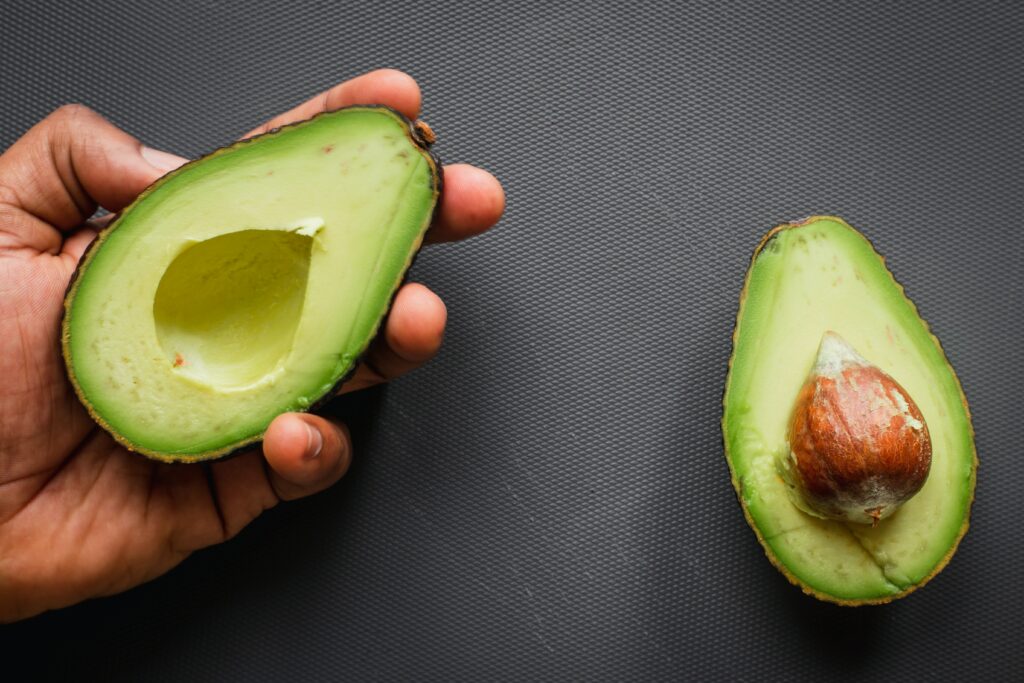
Avocados contain a fatty acid called persin which is toxic to dogs. It is present in the skin, pit, and leaves.
Even small amounts of persin can be poisonous to your dog, so you should keep this fruit out of your dog’s reach.
The most common sign of persin effects in dogs is diarrhea and vomiting. Your dog could experience signs of myocardial Infarction when they ingest this fruit.
2. Grapes
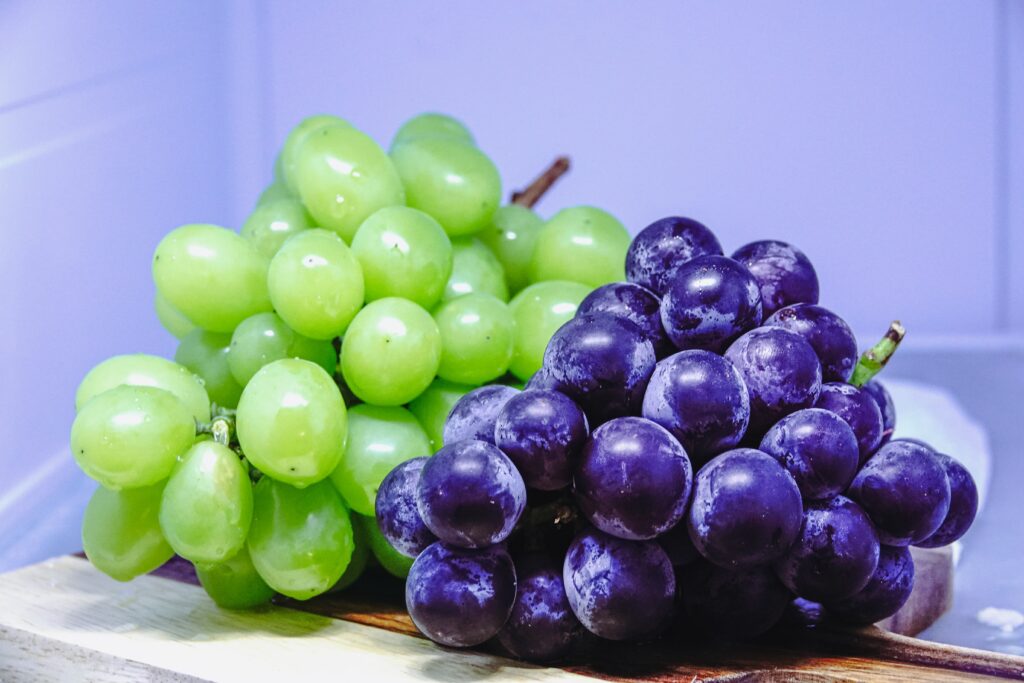
Grapes contain indigestible substances which are toxic to dogs and can cause very serious problems like acute kidney failure or even fatality. Raisins, which are dried grapes, are also harmful to dogs and should be avoided.
There’s no established lethal dose of grapes. Dogs can get serious effects even after ingesting a small portion.
Grapes are also high in sugar. The sugar content can make your dog’s blood sugar levels spike, putting them at risk for diabetes.
3. Cherries
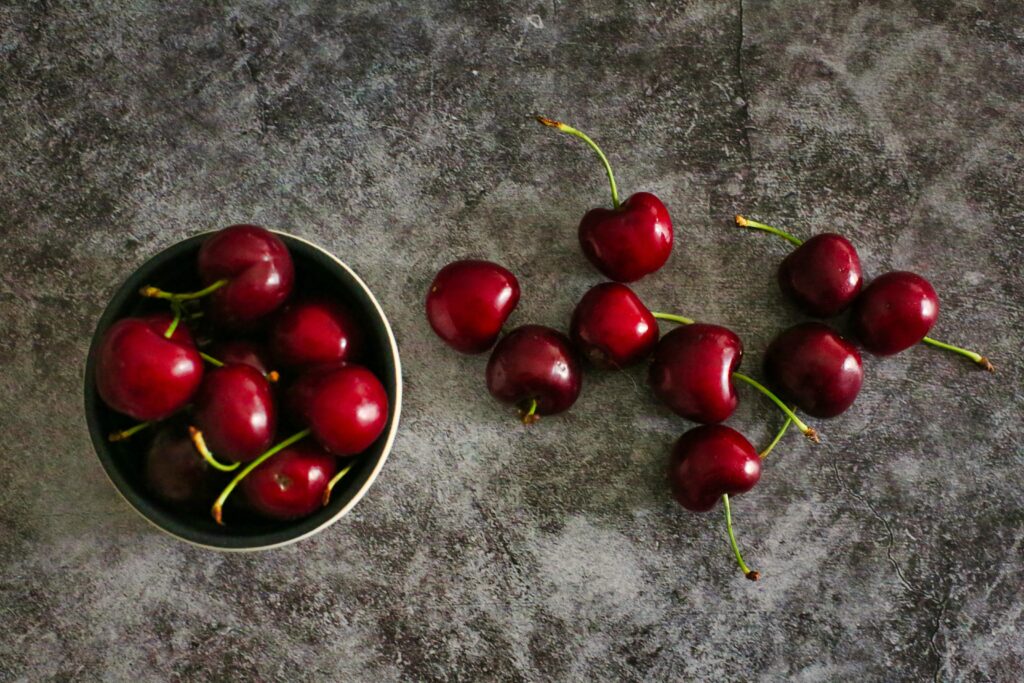
The pit, seeds, and leaves of cherries contain cyanide which is lethal to dogs. Cyanide is released into the dog’s system in huge amounts when they chew the seeds.
Cyanide abstracts the absorption of oxygen in your dog’s system hence it can be fatal if left unchecked. The common sign of cyanide poisoning is difficulty in breathing, drooling, red gums, nausea, and dilated pupils.
4. Tomatoes
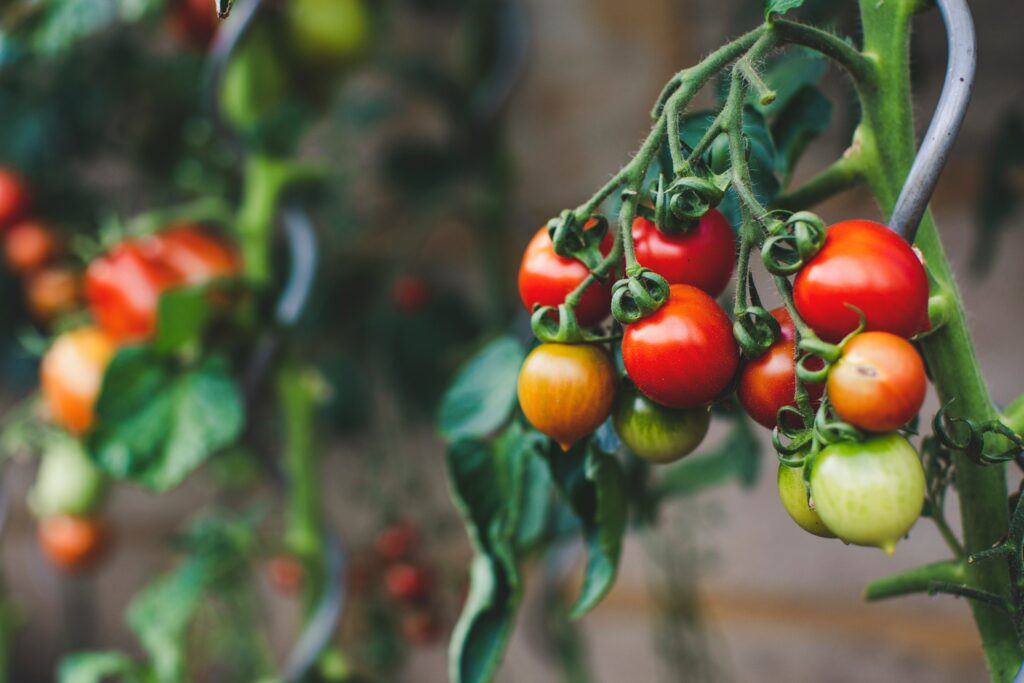
Green tomatoes have a compound known as solanine, also called tomatine, which is harmful to dogs. Ripe tomatoes are generally considered to be safe for dogs but it is best to avoid them altogether.
Solanine is the same compound present in raw potatoes that causes harm to dogs when ingested.
Common Side Effects of Fruit Poisoning in Dogs
When your dog ingests an unsafe fruit, they might acquire a wide range of effects. Some of the most common ones are;
- Vomiting
- Diarrhea
- Constipation
- Upset stomach
- Excessive drooling
- Increased thirst
- Increased urination
- Lethargy
These effects will typically take between 12 to 72 hours before appearing. Some dogs might not show any adverse effects but that does not mean that the fruits are safe for them.
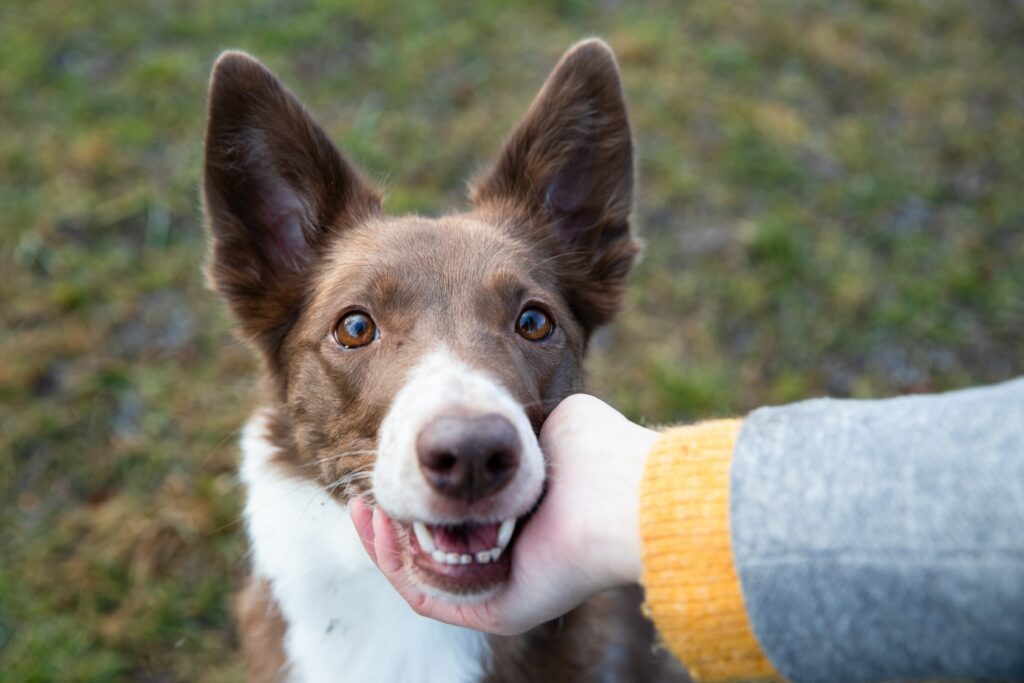
Some factors that affect the severity of these effects include:
- The size of the dog.
- The health conditions of the dog.
- The amount of fruit ingested by the dog.
- The type of toxins in the fruit.
If you suspect that your dog has eaten a poisonous fruit, contact your vet immediately.
Your veterinarian will be able to determine the type of toxins that caused the unwanted effects and recommend the best treatment methods for your dog.
Also, be on the lookout for other secondary symptoms that could be indicative of other underlying medical conditions.
Home Remedies for Fruit Toxicity in Dogs
If your dog ate a poisonous fruit, it’s probably best to try and flush the toxins from their stomach before they get absorbed in the bloodstream. Don’t wait until the effects become so severe for you to act.
Here are some of the remedies you can use at home to calm the situation:
1. Hydrogen peroxide
For every 5 pounds weight of your dog, take one tablespoon of 3% hydrogen peroxide and mix it with one teaspoon of sodium bicarbonate. You can use a pet feeding syringe to administer this solution to your dog.
The affected dog might vomit anytime within 5 minutes after taking the solution. You may want to sample your dog’s vomit and take it to the vet for testing.
2. Activated charcoal
Activated charcoal has the power to bind up toxins in your dog’s GI system, hence preventing further uptake into the bloodstream.
Take one tablespoon of fine powdered activated charcoal and dissolve it in ½ cup of warm water. Stir the solution until all the charcoal seems to get dissolved.
Use a pet feeding syringe to administer the solution to your dog.
You can use the hydrogen peroxide and activated charcoal treatment in combination or just stick to one if you have a small dog or puppy.
3. Natural honey
You can also use honey to calm your dog’s upset stomach while waiting for further treatment. For every 20 pounds weight of your dog, take ¼ tablespoon of honey and give it to your affected pooch orally.
Dogs love the taste of honey, so you need to be careful not to give them an overdose. Honey contains high sugar content and taking too much of it might cause further upset.
4. Apple cider vinegar
Apple cider vinegar (ACV) is not harmful to dogs, and you can use it to calm an upset stomach. Mix 1 teaspoon of ACV with 2 cups of your dog’s drinking water and give them to drink.
Don’t force your dog to drink this water at once. Just small sips a day will get the work done.
If you don’t notice any improvement in your dog’s condition, or when they fail to throw up, it is best to visit the vet.
Make sure to inform your vet of the homemade solutions that you tried on your affected dog before.
FAQs On Unsafe Fruits for Dogs
1. My dog ate unsafe fruits and they seem fine, what should I do?
If you are sure that your dog has ingested any unsafe fruit, then you should call the vet right away.
The affected dog might not show any ill symptoms within the first few days but that does not mean that the fruit is safe for them.
They could only delay showing the symptoms but the effects will be seen sooner or they might come later with much severity.
Remember, the earlier you treat your dog, the better chances for them to fully recover.
2. How to prevent your dog from fruit poisoning
The best way to prevent your dog from consuming these types of fruits is by keeping them out of their reach.
Have a locked cabinet in the kitchen where you safely store your fruits and fruit products. You also need to carefully dispose of the peels of all the fruits you eat at home.
You should train your dog to always eat from their feeding bowls or when you give them food by hand. This way, you can be sure that they will not ingest the ‘low-lying fruits’ they find along the way.
If you are growing any dog-unsafe fruits in your yard, then you need to fence the area to limit their access to the trees.
Most of these fruits have toxic compounds in the leaves and so you would want your dog to stay away from them.
Avoid giving your dog any foods that have been made with unsafe fruits for example raisin bread. This will subject them to dangerous effects even if in small amounts.
Give your dog a well-balanced diet. Make sure that your dog gets the right nutritional serving every day. Their foods should have proteins, vitamins, and all other nutrients that are good for them.
Allowing your dog to starve off any nutrient might force them to eat foods that might be poisonous to them.
Consider safe fruits for dogs. If you want to sneak some vitamins and minerals into your dog’s diet then there are plenty of options available.
From apples to bananas to strawberries, the list is long. Find all fruits that are good for dogs and what you should know before feeding them.
To Wrap It Up
What fruits can dogs not eat? Avocadoes, cherries, tomatoes, and grapes are all classified as fruits that are toxic to dogs and can cause serious health effects or even death.
Be sure to keep your dog away from these fruits to protect their health and safety. If you’re looking for a healthy fruit treat for your dog, try some safe fruits in moderation.
Laura is the founder of Furs'n'Paws. She is a also a pet writer and expert with more than 20 years of experience of working with dogs and cats. She developed a very strong love for animals at a young age. Her passion led her to establish a thriving pet sitting and dog walking business in Dubai. As an expert in pet training, behavior, and nutrition, Laura is committed to helping pet owners and pet lovers by offering high-quality information on a wide range of topics.


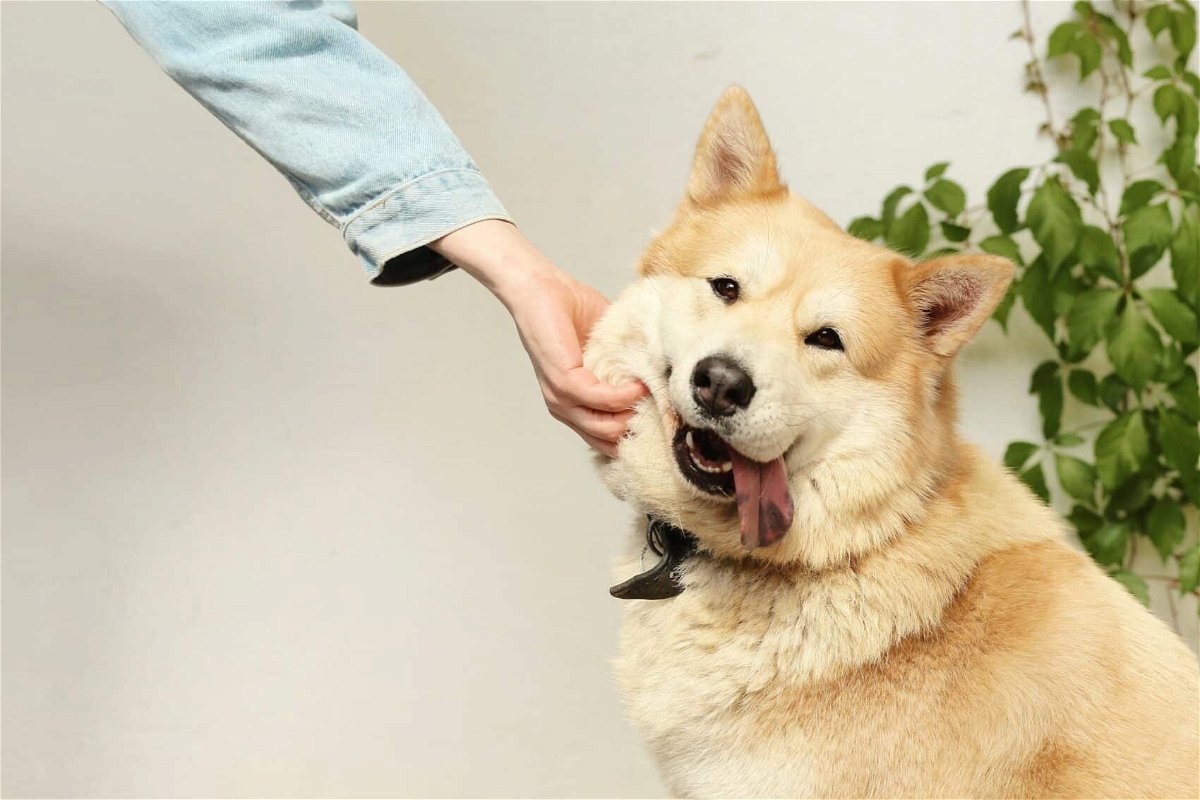
No responses yet